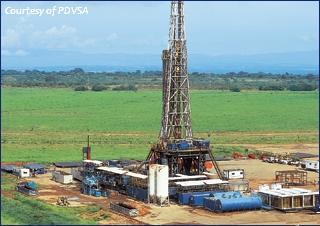|
|
Energy
Japan to Import Venezuelan Crude Oil, Boost Reserves of Petroleum Products
Saturday, November 19, 2011

Tokyo- (PanOrient News) Japan will import crude oil from Venezuela under a long-term contract, a move aimed at diversifying its energy resource procurement as a result of an overhaul of Japan's energy policy, a step that was inevitable after the Fukushima nuclear disaster.
This marks the nation's first steady long-term procurement of crude from the South American country. In the past, Japan had used spot deals as needed. Mitsubishi Corp., Itochu Corp., two other trading houses, and the Japan Bank for International Cooperation are part of the alliance that struck the deal in June with Petroleos de Venezuela SA, Nikkei reported.
The Venezuelan state-run petroleum company secured loans totaling 1.5 billion dollars, or about 115 billion yen. In exchange, PDVSA will supply crude oil and petroleum products to Japan for 15 years, with the proceeds to be used to repay the loans.
The first shipment of 1 million barrels of crude oil left Venezuela on Friday and is expected to arrive in Japan late next month for delivery to Mitsubishi. The four trading houses are expected to receive more than 3 million barrels a year.
Because of high transportation costs, PDVSA agreed to offer lower prices than those for Middle Eastern crude.
Venezuela has 211.2 billion barrels of crude in reserves -- ranking No. 2 worldwide, after Saudi Arabia. It permits foreign concessions of up to 40% in its oil fields. Japan and Venezuela inked a memorandum of understanding on energy cooperation in 2009.
Japan now relies on the Middle East for more than 80% of its crude oil imports and last bought from Venezuela in 2007.
Meanwhile, the Petroleum Association of Japan proposed to establish emergency national reserves of gasoline, kerosene and other petroleum products.
The association said this proposal is part of recommendations for changes to energy policy focusing on oil as an energy source, arguing that it boasts greater supply stability in emergencies than electricity or city gas.
The association called for fiscal support for earthquake- and waterproofing distribution points. It also said oil companies should expand systems for gathering information on supplies during emergencies.
To maintain the supply chain, steps also need to be taken to ensure stable longer-term demand for oil for such uses as heating and hot water, transportation, and power generation, according to the proposals.
Looking ahead to winter, when demand for kerosene is expected to grow, association Vice President Yaichi Kimura said domestic stockpiles of the fuel are more than 30% higher than a year ago, at 3.6 million kiloliters, according to Nikkei..
"With this much quantity, there shouldn't be any problems (with supply)," said Kimura, who is president of Cosmo Oil Co.
PanOrient News
© PanOrient News All Rights Reserved.
|
|

